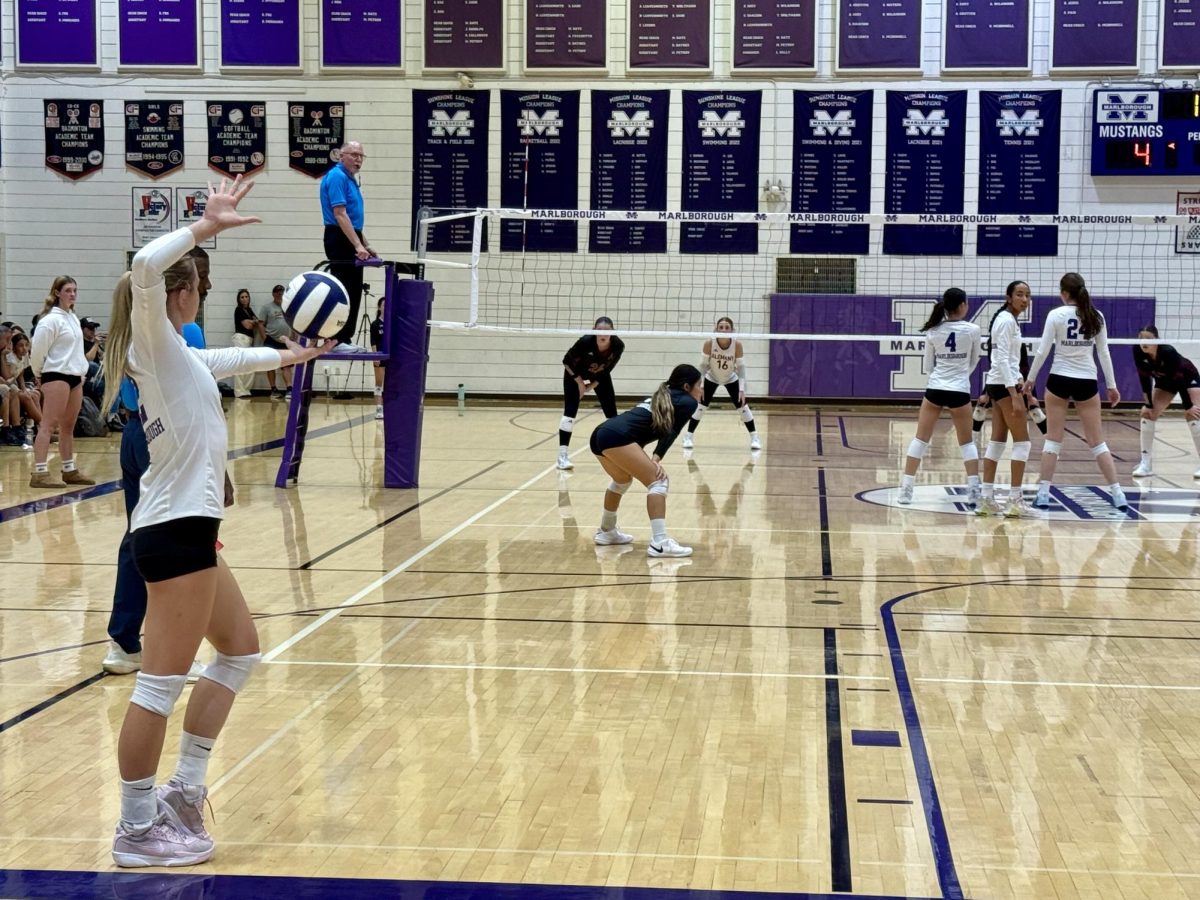Each year, Marlborough and other independent schools in Los Angeles receive thousands of applications. Admissions directors of the various schools carefully choose students who they believe are a good fit for the specific school. In most high schools, especially those with competitive sports teams, athletic skill is one of the criteria by which a student may be judged. Although the California Interscholastic Federation (CIF) prohibits the act of recruiting athletes for high school teams, students of Los Angeles high schools that participate in CIF speculate that the process of building high school sports teams is beginning to look a bit too similar to collegiate-level recruiting.
Marlborough Director of Admissions Jeanette Woo Chitjian explained that athletics do play a role in the admissions process but are never prioritized over academics.
“First and foremost, the Admissions Committee reviews application files looking for students who will be successful here in the classroom. Once we finish that ‘first cut,’ we seek girls who will gain from and contribute to this community. Athletics is one of many ways in which students can add to our school,” Woo Chitjian said.
The CIF prevents coaches from exerting undue influence and can impose serious punishments for the coach, school and student.
According to Director of Athletics David Collicutt, a coach cannot contact a prospective athlete unless the athlete or her family contacts the coach first.
“We are available if families applying want to ask questions, but our coaches can’t go out and find athletes and recruit them to come to the School,” Collicutt stated.
Members of the admissions committee as well as coaches at Marlborough are careful not to violate the CIF regulations.
“I can’t speak for other schools, but I know that Marlborough always follows the CIF rules,” Head Varsity Soccer Coach Jeff Blumkin said.
In spite of these rules, rumors swirl about whether or not other schools are as honorable because there are ways schools can attract athletes without technically violating rules.
“You are not allowed to recruit for high school teams, but you are allowed to go and look at fifth and sixth grade athletes. If they speak to you first, you are allowed to speak with them,” Blumkin said.
Once a prospective athlete’s family has approached a coach with questions, the coach is then allowed to answer questions in addition to giving guidance to what necessary steps the family should take. Although admission cannot be promised to prospective athletic applicants, coaches do have a role in reviewing the athletes that are accepted. A student fills out a form online where she answers questions about her sport. On this form the student states what club she is in, how often she practices, how long she has been playing, and what her ranking may be.
Collicutt added that this process is important to the formation of a diverse student body: “A student’s club coach can write a recommendation, which is then viewed by the athletics office and enables the committee to ultimately figure out how to fill out all of the extra curriculars so that Marlborough has a student body that is diverse in multiple ways,” Collicutt said.
While these steps comply with CIF rules, some athletes, such as varsity volleyball player Emily Kolsky ’16, worry that the process is becoming a little too similar to the recruiting in college admissions.
“I understand that coaches and athletic departments need to learn about the athletes before accepting them to make sure that they will have strong enough teams and enough people on these teams. But I think the only issue is the morality behind a high school coach watching a sixth grader play in a sports game without that athlete knowing the coach is there because in that situation, yes, the coach is following the rules because he or she is not going up to the athlete and introducing him or herself, but it feels a bit too similar to the college recruiting process when it’s athletes who are only 12 or 13 years old,” Emily ’16 said.
While it may be possible that the CIF rules have some gray areas, Collicutt explained that sports teams could be jeopardized if athletes were not selected as carefully as they are.
“Sports do play a piece in the process because you wouldn’t want to have a whole student body where nobody plays soccer because then when it’s time to fill up the soccer team, there wouldn’t be anybody to try out for the team!” Collicutt said.






